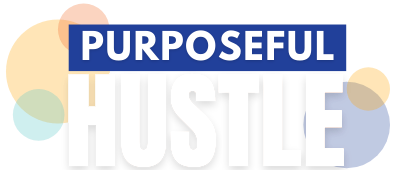One of the biggest worries for those hoping to start a small business is financial security. There are bills to pay, groceries to buy, children to support, car repairs to make—the list goes on. The financial hurdle can be so terrifying that many would-be business owners never dare to make their move.
I get it. I’ve been there.
For me, it took a lot of planning and candid budget discussions with my husband before I was ready to take that leap. We prepared ourselves for some lean months, and I was ready to hit the ground running to create a viable, profitable business.
Everyone’s financial situation is different, but no matter your bank account balance or credit score, there are numerous opportunities to drum up funding to start your own business, including several methods that don’t involve paying back the money you raise. Here are 4 ways…
1. Crowdfunding
Crowdfunding is a robust and realistic option today for many aspiring business owners. One of the main advantages of crowdfunding is that the money you raise is yours, with few or no strings attached. Unlike a loan, you don’t have to pay the money back and, unlike accepting money from venture capitalists, you don’t have to give up control of any aspect of your business (venture capitalists often expect a stake in the business and/or a spot on your business’ board). In some cases, your crowdfunding backers may receive a small gift as a token of thanks.
When you engage in crowdfunding, make sure you choose the right platform (Hubspot put together a list of 23 different crowdfunding sites, specifically for small businesses). Before starting your crowdfunding campaign, make sure you’re prepared with a solid business plan and attractive visuals that show potential backers how their money will be used.
2. Grants
Another great “no strings” option is applying for grants. Like crowdfunding, any money you earn through grants is yours to keep. The process, however, is a bit more formal than crowdfunding and will require some research and time. However, the effort can be well worth it! Thousands of grants are available to aspiring business owners, either through public or private sources.
Additionally, several of these grants are only available to a small subset of people (women, BIPOC, veterans, rural residents, etc.), so you don’t necessarily have to compete against the entire nation to win a grant.
To find a list of government grants (there are thousands!) check out Grants.gov. Private grants (many through corporations) are available through several different sources including Walmart, Amazon, and VISA. The US Chamber put together a long list of options that is worth perusing.
The Minority Business Development Agency is also a great resource for people of color who are hoping to start a business. They offer various resources, as well as several grants. Additionally, NerdWallet has put together several excellent grant lists for women, BIPOC, and, specifically, Black women. Check them out!
3. Self-Funding
One surefire way to raise money for your business is to start building up your savings. Though this method isn’t as glamorous as crowdfunding or earning grants, it is a solid option that most startup founders use. Create a dedicated savings account (or even an envelope system) and start setting aside a certain dollar amount each month. Then, leave it alone! Pretend that money doesn’t exist and do not tap into it unless you’re facing a financial emergency. Month by month, your savings will grow and, eventually, you’ll have a nice nest egg for starting your business.
You could also call upon family and friends for startup dollars or low- or no-interest loans, but be cautious! The last thing you want is to create family/friend tension because of money. If you do decide to borrow money from a loved one, be sure to honor that loan by making regular payments to repay your debt.
4. SCORE
Run by the Small Business Administration, SCORE is a national volunteer network of business mentors. Most major cities have a local chapter of SCORE, which provides valuable resources and assistance to small business owners. Though this isn’t exactly a funding source, it can connect you with funding resources. Type “funding” into SCORE’s search bar and you’ll find a multitude of sources, from webinars to articles.
Bonus: Other Sources
There are, of course, several other funding sources that do come with strings attached. These include small-business loans (try looking into SBA-guaranteed loans if you have poor credit or have been turned down by your bank or credit union) and venture capitalists/angel investors. You could also fund part of your business through credit card payments, tapping into your 401(k), or taking out a line of credit, but I advise you to be EXTREMELY cautious with these funding sources. You don’t want to ruin your retirement goals or end up swimming in debt.
--
If possible, try pursuing the no-strings funding options first. These fundraising methods may require an up-front investment of your time, but the results can absolutely be worth it. Start researching, develop a fundraising plan, and get to work! Your dream is waiting.








Leave a Comment